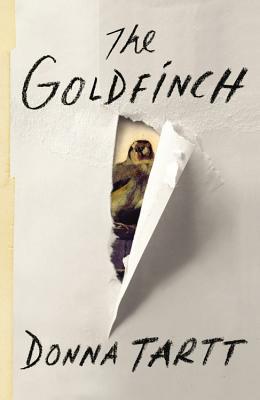 What do you do when a book reaches into your soul and squeezes it so hard you’re left breathless and filled with a wondrous ache and yet the marvel of hope and the beauty of sorrow? You dry your eyes, still your weeping and read it all over again – this time, more slowly, taking in the deceptively simple and heart-warming prose and the gentle joy of the illustrations.
What do you do when a book reaches into your soul and squeezes it so hard you’re left breathless and filled with a wondrous ache and yet the marvel of hope and the beauty of sorrow? You dry your eyes, still your weeping and read it all over again – this time, more slowly, taking in the deceptively simple and heart-warming prose and the gentle joy of the illustrations.
So it was when I had the amazing experience of reading Rachel Noble’s utterly lovely book for children, Finn’s Feather. This is a stark, moving and gorgeous tale about a boy named Finn who, when he finds a perfect white feather on his doorstep one day, believes it is a gift from his dead brother Hamish. I know… right?
The story is about how Finn, thrilled with his brother’s gift, can’t understand his mother’s or teacher’s reaction. His mother hugs him and sighs, his teacher takes a deep breath and smiles (and God, how I hurt when I read their reactions – it was a visceral response). It’s left to his best friend, Lucas to find, with Finn, the pleasure in his brother’s gift and the message it sends: to continue to laugh, love and never forget.
This exquisitely rendered tale of grief and loss, is told very much through a child’s eyes and how they process sorrow so differently. It is so sensitively rendered, so positive in its scope and the message and, believe it or not, happiness it offers (as well as the unbelievably touching acknowledgment of loss) that it should be read widely by everyone who has a child or who has experienced the death of a beloved.
I have been so touched by this story, but also rightly impressed with how it has been told – the care and love that has gone into a difficult and yet important tale in a society that generally doesn’t handle discussions of death at all well. Rachel Noble is to be commended and, indeed, praised for this elegant, poignant work – and for the ways in which she’s used her own experiences to give it such veracity and depth.
Let me give you a bit of background. In October 20102, Rachel lost her son Hamish in a terrible accident at home. As a way of trying to make sense of what happened, of Hamish’s death, as a professional writer, she turned to her craft: she wrote – and wrote and wrote. Knowing she wanted to write a picture book to honour Hamish and everything he means to her and her family, it wasn’t until she came home one-day and found a feather on her doorstep that Finn’s Feather took shape.
Snapped up by a US publisher – the phenomenal Enchanted Lion books, a family owned enterprise, it comes out June this year, including in Australia.
This is such an important book, such a lovely addition to any child’s and family’s library, I cannot recommend it enough. In sharing her emotions, her family’s story in such an accessible and meaningful way, Rachel has given voice to what is so hard to express and, along with Zoey Abbott, given death and loss a tender garment for us all to don and cherish.
I loved Finn’s Feather and all the complex emotions it stirred, and the big, aching heart at its beautiful centre.
Thank you.

 In this novel, Backman introduces the reader to the almost preternaturally bright, precocious and quite lovable seven year-old Elsa. Bullied at school, aware of her differences and trying to pretend her clever and busy mother’s pregnancy to her new and perfect boyfriend aren’t bothering her, Elsa is a child that arouses passionate responses in those who meet her – and, if she doesn’t right away, she ensures they soon will. The reason for her quirkiness, intelligence and strong awareness of what constitutes social justice becomes apparent almost immediately. Not only is Elsa equipped with a great mind and wonderful imagination, both are fiercely and lovingly cultivated by her outrageous and smart grandmother.
In this novel, Backman introduces the reader to the almost preternaturally bright, precocious and quite lovable seven year-old Elsa. Bullied at school, aware of her differences and trying to pretend her clever and busy mother’s pregnancy to her new and perfect boyfriend aren’t bothering her, Elsa is a child that arouses passionate responses in those who meet her – and, if she doesn’t right away, she ensures they soon will. The reason for her quirkiness, intelligence and strong awareness of what constitutes social justice becomes apparent almost immediately. Not only is Elsa equipped with a great mind and wonderful imagination, both are fiercely and lovingly cultivated by her outrageous and smart grandmother.
 o much read The Goldfinch by Donna Tartt as I was swept up in its powerful and sublime narrative with its exploration of love, loss, beauty, material objects and the relationship we can form with these and other people in our lives and how the choices we make, which are embedded in a moral code, define us.
o much read The Goldfinch by Donna Tartt as I was swept up in its powerful and sublime narrative with its exploration of love, loss, beauty, material objects and the relationship we can form with these and other people in our lives and how the choices we make, which are embedded in a moral code, define us.


